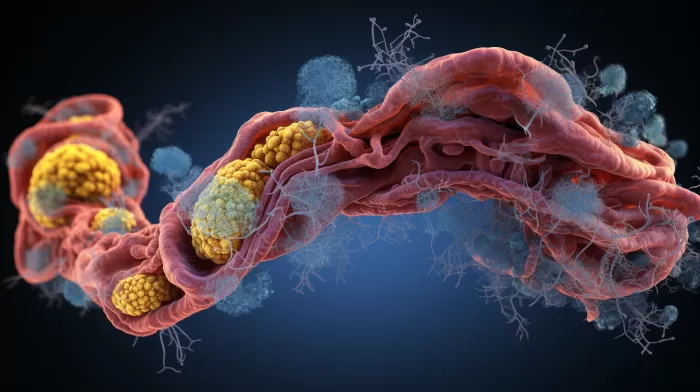The colon is a critical organ for maintaining overall health and preventing disease, making it an essential focus point for improving your body’s chemistry. Ensuring the colon operates efficiently is crucial, as inadequate elimination can result in toxic poison, or toxemia, accumulating in the blood and ultimately leading to various degenerative diseases.
Drugs: A Hindrance to Elimination
Taking medications for pain relief can hinder the natural elimination process, preventing the colon from effectively clearing out waste. When natural elimination fails, the body attempts to force out the toxins by producing a crisis in the form of a cold, flu, headache, pneumonia, or even more severe symptoms. This is the body’s attempt to expel toxic substances. However, using drugs for treatment can obstruct the natural healing process and result in a more complicated recovery.
Nutritional abuse and a build-up of toxemia over the years from poor bowel movement can contribute to the development of cancer. It is essential to understand that a toxic colon is the leading cause of all disease-producing toxins.
The Acidic Diet and Fiber
The main reason behind a toxic colon is an acidic diet comprised mainly of commercially produced foods. This type of diet results in toxin accumulation, poor elimination, and, ultimately, colon disease. To purify the blood and body effectively, ensure adequate fiber intake.
They say death begins in the colon, but it actually begins in our diet. We must focus on improving our health by enhancing our knowledge of colon health. Comprehensive awareness of colon health is vital as it is significantly responsible for maintaining our entire health.
The Significance of Fiber: Preventing Diseases
According to Dr. Dennis Burkitt, a British researcher, a lack of sufficient fiber in the diet can lead to ten severe diseases, including heart attacks, diverticular diseases, appendicitis, colon cancer, hiatal hernia, varicose veins, hemorrhoids, diabetes, obesity (big stomach bloat), and constipation.
Aging can also exacerbate colon problems due to a soft food diet combined with a lack of exercise. Consuming a high-fiber diet and regularly exercising can effectively combat these issues. In contrast to modern society, primitive people did not suffer from these health problems, as their diet consisted primarily of high-fiber raw foods.
While there is no limit to the amount of fiber the body can process, a fiber-rich diet can greatly improve overall health. It is essential to supplement our daily diet with fiber, as it is impossible to replicate a primitive diet, which is simply unavailable in today’s world.
The Importance of Fiber in the Diet
Fiber plays a key role in preventing constipation and maintaining a healthy bowel function. Soluble fiber, which is found in fruits, vegetables, and some grains, slows digestion, allowing the colon to absorb more nutrients from the foods we consume. Insoluble fiber, found in whole grains, nuts, and seeds, adds bulk to the stool, facilitating bowel movements and preventing constipation.
For optimum colon health, it is recommended to consume at least 25-30 grams of both soluble and insoluble fiber daily. This can be achieved by incorporating fiber-rich whole grains, fruits, vegetables, legumes, nuts, and seeds into your diet. Drinking plenty of water and adding fermented foods, such as yogurt, kefir, and kimchi, is also crucial for maintaining a healthy gut.
Incorporating Fiber in your Daily Meals
A fiber-rich diet can be achieved by following some simple guidelines:
- Start your day with a high-fiber breakfast, such as whole-grain cereals or oatmeal, topped with fruits or nuts.
- Replace refined grains with whole grains, such as switching from white bread to whole-grain bread or brown rice instead of white rice.
- Incorporate a variety of fruits, vegetables, legumes, nuts, and seeds into your diet, and aim to include at least one in each meal.
- Choose snacks that are high in fiber, like raw vegetables, fruits, nuts, or whole-grain crackers.
- Gradually increase your fiber intake to avoid bloating and gas. Give your body time to adjust to the increased intake.
Promoting Colon Health Beyond Fiber
In addition to incorporating fiber into your daily diet, you can also incorporate other habits to maintain a healthy colon:
- Exercise regularly to stimulate bowel movements and reduce the risk of colon cancer.
- Drink plenty of water throughout the day to stay hydrated and promote gut health.
- Limit alcohol consumption and quit smoking, as both can increase your risk of developing colon cancer.
- Schedule regular check-ups and screening tests, such as colonoscopies, to detect any potential issues early on.
Your colon health is crucial for maintaining your overall well-being, and focusing on nutritional improvement can set the foundation for a healthier lifestyle. By consuming a fiber-rich diet, staying active, and making conscious choices towards better health, you can vastly improve your colon health and enjoy a life free from diseases related to toxic build-up.



